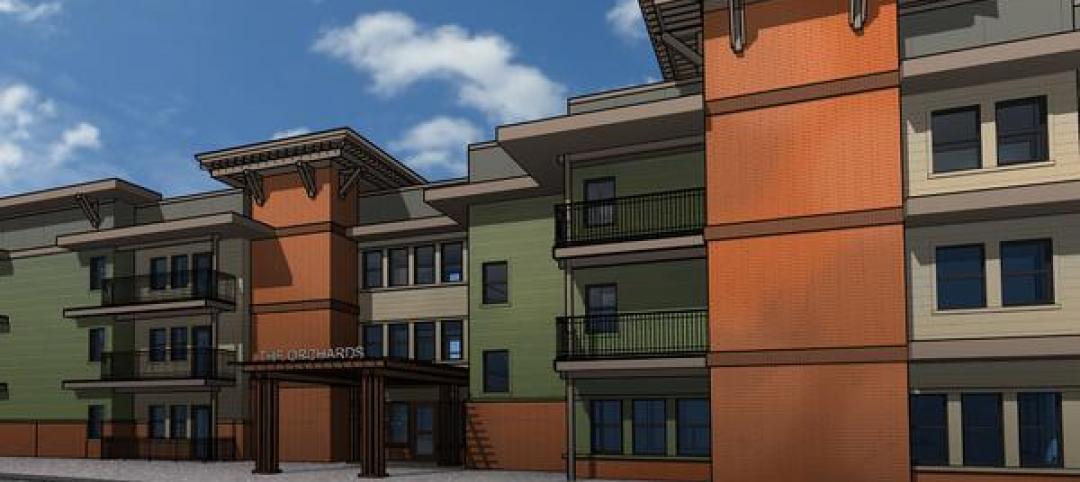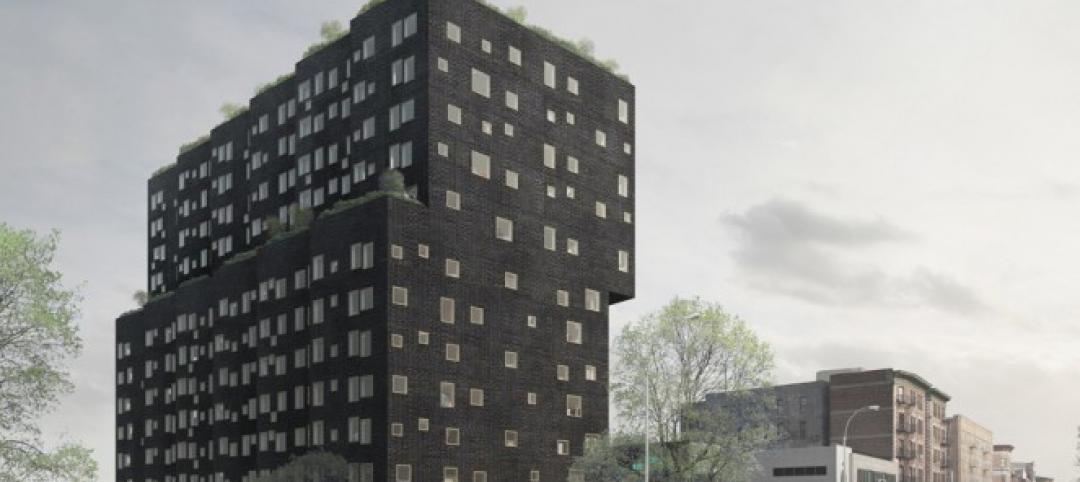The design and construction outlook for Multifamily Housing is again moving in the right direction, according to the PSMJ Resources’ Quarterly Market Forecast (QMF).
After a first quarter that saw the multifamily market suffer its lowest level of proposal activity in nearly a decade, PSMJ’s quarterly survey of architecture, engineering, and construction firm executives reported a +7% net plus/minus index (NPMI), up from the -2% recorded in the first three months of the year.
PSMJ’s NPMI expresses the difference between the percentage of firms reporting an increase in proposal activity and those reporting a decrease. The QMF has proven to be a solid predictor of market health for the AEC industry since its inception in 2003. A consistent group of over 300 firm leaders participate regularly, with 171 contributing to the most recent survey.
As unimpressive as multifamily’s second quarter NPMI is—particularly considering that it experienced seven consecutive years of quarterly NPMIs above 40% through the end of 2019—the upturn is significant. The market’s negative NPMI in the first quarter was its lowest since it capped 11 consecutive quarters of negative proposal opportunity growth with a -5% in the third quarter of 2010.
Multifamily Housing Market Proposal Activity – 1Q08 to 2Q20 (NPMI)
The multifamily rebound was part of overall improving conditions for most of the Housing market. Even with the COVID-19 crisis slowing down the overall economy, housing’s rebound may be driven in part by historically low mortgage interest rates.
Housing’s NPMI increased from -19% in the first quarter to +2% in the second quarter, making it one of only four major markets with a positive NPMI among the 12 assessed in PSMJ’s QMF. Water/wastewater (20%), energy/utilities (15%) and healthcare (10%) were the others.
Among the firms that work in the multifamily sector, 31% said that proposal activity increased in the second quarter, while 24% said it decreased. The remainder said the market was relatively flat.
PSMJ Senior Principal David Burstein, PE, AECPM, predicts that single-family housing will rebound faster and stronger than multifamily in the coming months.
“Overall, the housing market is very strong,” says Burstein. “For many years, this market has been dominated by multifamily housing as people moved into cities. Recently, that trend has reversed. Single-family housing in suburbs is now stronger than multifamily housing in large cities. This is even more true for new condominiums than for new apartment rental housing.”
Among housing’s other submarkets, single-family properties (individual) saw its NPMI improve from -31% in the first quarter to +9 in the second quarters.
Single-family developments remained well into the negative at -12%, but that was up from -28%.
Senior/assisted living ticked up from -3% to -1%, while condominiums continued to struggle (-28% in Q1 to -26% in Q2).
Related Stories
| Jun 19, 2014
First look: JDS Architects' roller-coaster-like design for Istanbul waterfront development
The development's wavy and groovy design promises unobstructed views of the Marmara Sea for every unit.
| Jun 19, 2014
Singapore's 'Tree House' vertical gardens break Guinness World Record
The high-rise development will have a 24,638-sf vertical garden, breaking a Guinness World Record.
| Jun 18, 2014
Largest Passive House structure in the U.S. to be built in Oregon
Orchards at Orenco, a 57-unit affordable housing complex in Hillsboro, Oregon, is the first of a three-phase, three-building complex.
| Jun 18, 2014
SOM's twisting tower wins design competition for Sweden's tallest skyscraper
The skyscraper, which will reach 230 meters and is named Polstjärnan, or "The Pole Star," is to be built in Gothenburg, Sweden.
| Jun 18, 2014
Arup uses 3D printing to fabricate one-of-a-kind structural steel components
The firm's research shows that 3D printing has the potential to reduce costs, cut waste, and slash the carbon footprint of the construction sector.
| Jun 17, 2014
U.S. Census report examines why Americans move
According to the U.S. Census Bureau, 35.9 million people moved between 2012 and 2013, meaning that 11.7% of the U.S. population moved in one year. The report seeks to examine why.
| Jun 13, 2014
Grocery stores, restaurants make neighborhoods most desirable [infographic]
John Burns Real Estate Consulting ranks the top 25 housing amenities by generation, based on feedback from more than 20,000 home shoppers.
| Jun 12, 2014
Austrian university develops 'inflatable' concrete dome method
Constructing a concrete dome is a costly process, but this may change soon. A team from the Vienna University of Technology has developed a method that allows concrete domes to form with the use of air and steel cables instead of expensive, timber supporting structures.
| Jun 11, 2014
David Adjaye’s housing project in Sugar Hill nears completion
A new development in New York's historic Sugar Hill district nears completion, designed to be an icon for the neighborhood's rich history.
| Jun 11, 2014
Koolhaas’ OMA teams with chemical company to study link between color and economy
Dutch company AkzoNobel is partnering with Rem Koolhaas' firm OMA to study how the application of colorful paints and coatings can affect a city's economic development.
















